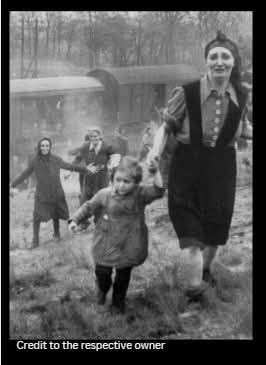April 1945. The war in Europe was drawing to a close, but for thousands packed into a train from Bergen-Belsen, the nightmare was far from over. Nearly 2,500 Jewish prisoners — gaunt, weak, and terrified — were trapped in boxcars as the train stalled near the village of Farsleben, Germany.
For days, they didn’t know if they would live to see another sunrise. Inside one darkened car, a mother held her daughter close, determined to keep alive not just her child’s body, but her spirit.
On April 13, tanks from the American 743rd Battalion appeared on the horizon. The German guards fled. Soldiers yanked open the boxcar doors. Light poured in. The people inside blinked against the sun — unsure if this was rescue or another cruel trick.
But kindness followed. The Americans brought food, water, and blankets. They lifted children into their arms, comforted the frightened, and promised safety. Slowly, hope began to return. That mother looked into her little girl’s face and realized: for the first time in years, tomorrow might be possible.
Today, we remember not just liberation, but resilience — the bravery of those who survived and the compassion that gave them a chance to live again.
